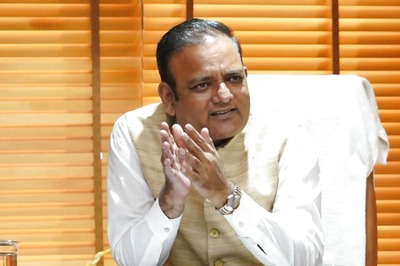
views
New Delhi: The National Green Tribunal has stayed the Andhra Pradesh government's Godavari-Penna interlinking projects due to lack of environmental clearance.
A bench of NGT Chairperson Justice Adarsh Kumar Goel rapped the Andhra Pradesh Pollution Control Board and said it has failed to perform its duty to take appropriate action as per law.
"In view of undisputed position that neither there is EC as required nor there is Consent to Establish under the Water (Prevention and Control of Pollution) Act, 1974 and the Air (Prevention and Control of Pollution) Act, 1981, the project cannot be allowed till the requisite environmental requirements are met," it said in a recent order.
"We restrain the State of Andhra Pradesh from proceeding further with the project in question till the requisite Environmental Clearance, Consent to Establish and Consent to Operate are taken under the Environment (Protection) Act, 1986, the Water (Prevention and Control of Pollution) Act, 1974 and the Air (Prevention and Control of Pollution) Act, 1981," said the bench, also comprising Justices S P Wangdi and K Ramakrishnan.
The Regional Office of the Ministry of Environment and Forests (MoEF) at Chennai may undertake the inspection of the project along with the Central Pollution Control Board (CPCB) and state pollution control board and furnish a factual report in the matter within a month by e-mail, the NGT said.
The CPCB will be the nodal agency for coordination and compliance, it added.
"A copy of this order be sent each to the State of Andhra Pradesh, Regional Office of MoEF at Chennai, the SPCB and the CPCB by e-mail for compliance. The applicant may furnish a complete set of papers to State of Andhra Pradesh and the CPCB and file an affidavit of service," the tribunal said.
The matter is listed for next hearing on August 13.
The tribunal was hearing a plea filed by former minister Vatti Vasanth Kumar claiming that the state government has initiated Godavari-Krishana-Penna rivers linking project without clearance from the Central Water Commission and the Ministry of Environment and Forests.




















Comments
0 comment